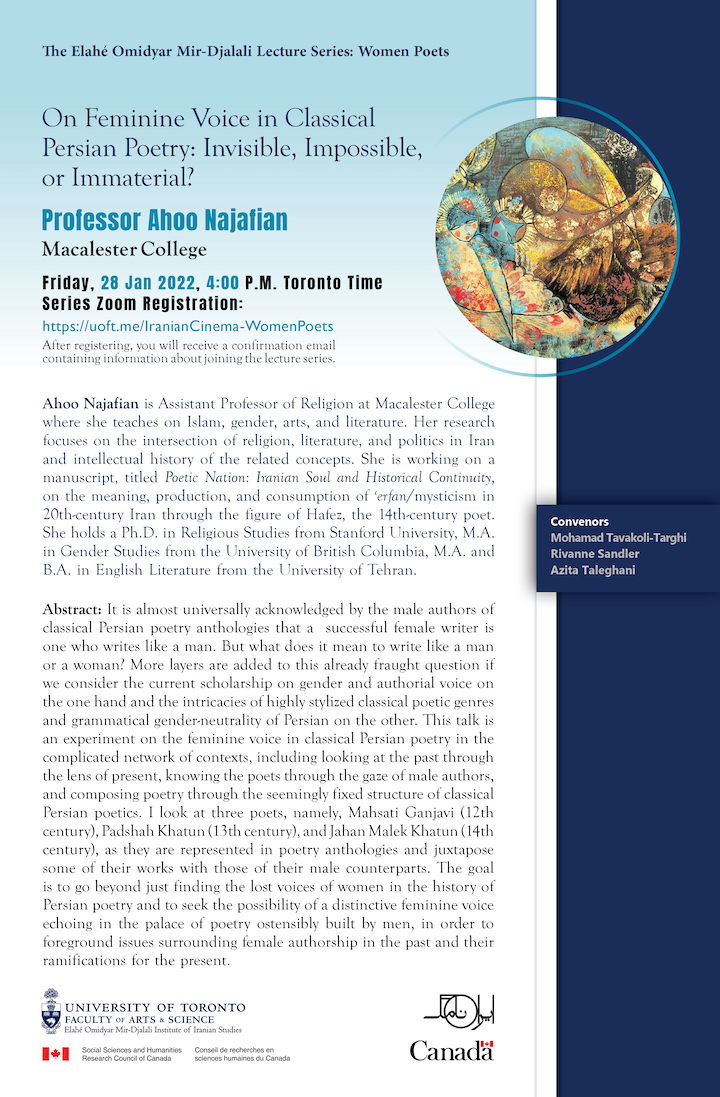

Ahoo Najafian is Assistant Professor of Religion at Macalester College where she teaches on Islam, gender, arts, and literature. Her research focuses on the intersection of religion. literature, and politics in Iran and intellectual history of the related concepts. She is working on a manuscript, titled Poetic Nation: Iranian Soul and Historical Continuity, on the meaning, production, and consumption of ‘erfan/mysticism in 20th-century Iran through the figure of Hafez, the 14th-century poet. She holds a Ph.D. in Religious Studies from Stanford University, M.A in Gender Studies from the University of British Columbia, M.A. and B.A. in English Literature from the University of Tehran.
Abstract: It is almost universally acknowledged by the male authors of classical Persian poetry anthologies that a successful female writer is one who writes like a man. But what does it mean to write like a man or a woman? More lavers are added to this already fraught question it we consider the current scholarship on gender and authorial voice on the one hand and the intricacies of highly stylized classical poetic genres and grammatical gender-neutrality of Persian on the other. This talk is an experiment on the feminine voice in classical Persian poetry in the complicated network of contexts, including looking at the past through the lens of present, knowing the poets through the gaze of male authors, and composing poetry through the seemingly fixed structure of classical Persian poetics. I look at three poets, namely, Mahsati Ganjavi (12th century), Padshah Khatun (13th century), and Jahan Malek Khatun (14th century), as they are represented in poetry anthologies and juxtapose some of their works with those of their male counterparts. The goal is to go beyond just finding the lost voices of women in the history of Persian poetry and to seek the possibility of a distinctive feminine voice echoing in the palace of poetry ostensibly built by men, in order to foreground issues surrounding female authorship in the past and their ramifications tor the present.